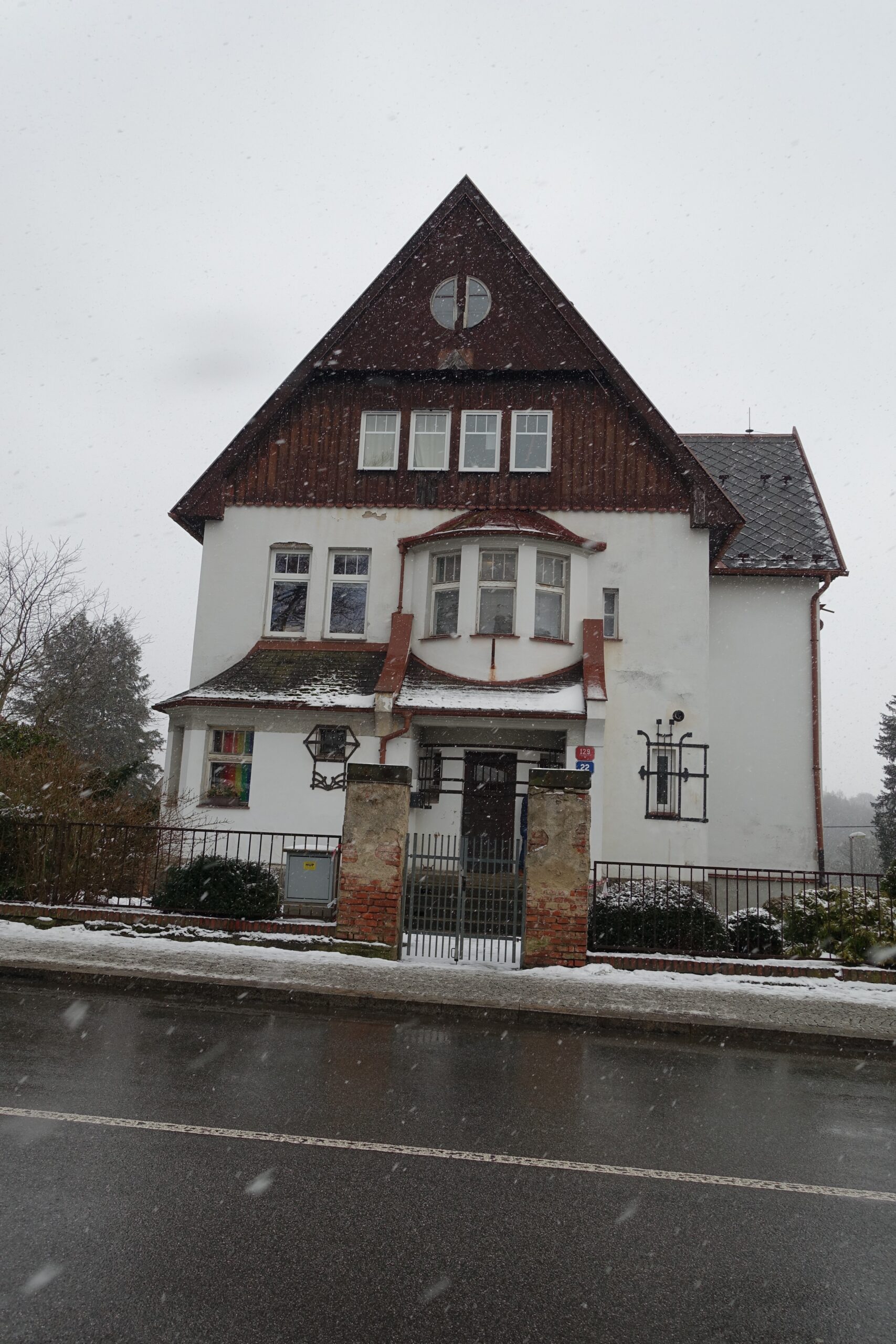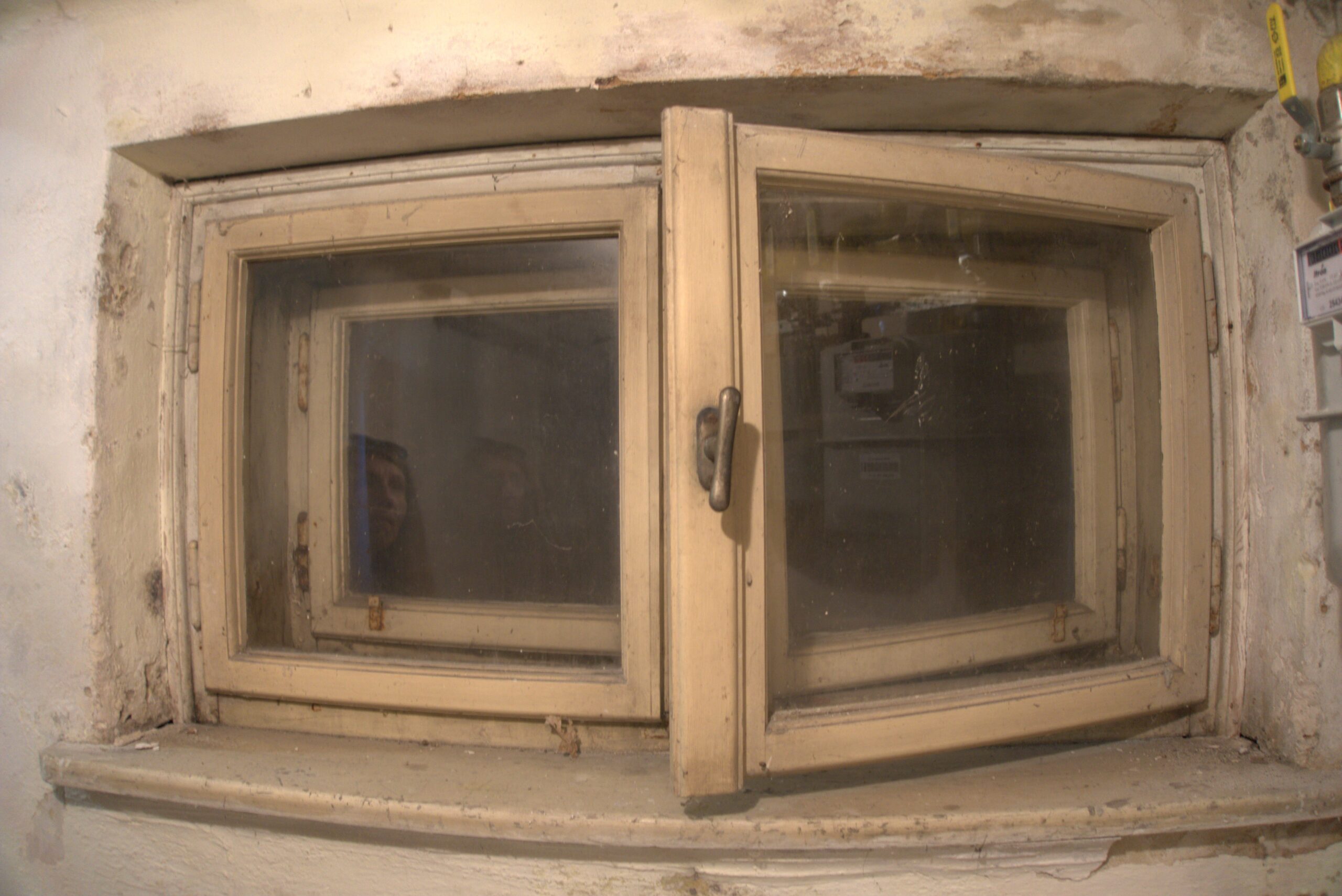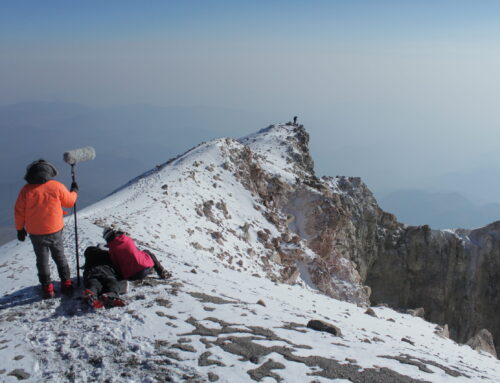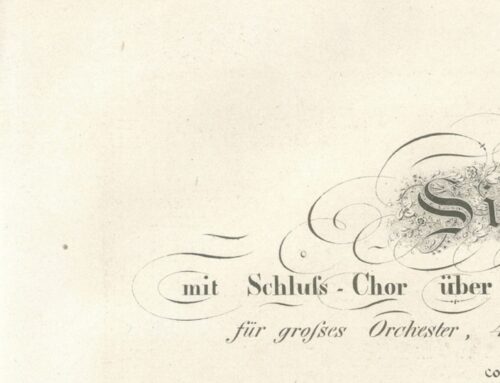Warning: This text discusses suicide
I shouldn’t have been so scared before this research interview. It was the second time I was going to meet this interviewee. The first time, almost half a year ago, he had told me about his family, and it had gone very well. But this second time, the usual power dynamic was disrupted: I would be telling him about his family. In the archive, I had found some new information about their family home and wanted to share it with him. But the nature of that information was unsettling, and I was wary of how he might react.
My research deals with unsettling things. I’m interested in the history of my hometown, Liberec, which was called Reichenberg until 1945. Although the city and the surrounding region had been part of the Kingdom of Bohemia and Czechoslovakia, it was inhabited mostly by German-speaking people. After World War II, German residents were expelled from the area and neighboring countries. Reichenberg was to become Liberec, repopulated by Czechs and Slovaks, and its German history was to be forgotten.
It is precisely this experience of the newcomers that I am interested in—what it was like to come to a foreign city, full of a foreign language and culture, and start a new life there. The newcomers were called “settlers” in the official discourse, as the Czechoslovak borderlands were presented as empty land that needed to be taken care of. Nevertheless, these places were full of reminders of the people who lived there before. The new residents might start living in a house full of belongings of the original inhabitants, who were allowed to depart with only one suitcase.
In my work, I combine archival and ethnographic research to understand what it was like to live in a house full of other people’s belongings. My research is based on the theory of hauntology, a concept developed by Jacques Derrida, referring to the lingering presence of past elements that “haunt” the present. In this framework, I consider the things that everyone in Liberec simply describes as “left behind by the Germans” to be ghosts that still remind us of a suppressed past.
But when I had first started collecting interviews with people who had come to Liberec after the war, or their children, it seemed that there were no more ghosts. After eighty years, the new inhabitants had long since made peace with their homes. The man I was to meet for the second time, whom I will call Josef, was a good example of coming to terms with the past. His father had come to Liberec with his family in the summer of 1945, briefly living in their new house together with the German family waiting for expulsion. Josef interpreted this cohabitation as evidence that his family had treated the Germans nicely. For Josef, this interpretation was further evidenced when some members of that German family came back to visit decades later and were invited into their old home for coffee. This family story allowed Josef to see his role as someone who took care of the legacy that the German inhabitants had left behind in the town. He said he even felt himself to be, not in a strictly biological sense, a descendant of the displaced inhabitants. It was the house that established a connection between these two families that, to Josef, felt like a familiar bond.
I had understood his narrative as a way of turning a traumatic past into an acceptable family history, rather than a factual account. But I did not expect to be able to deconstruct this narrative of his. However, when I was going through archival materials on confiscated houses and apartments, I came across a familiar name and address. In the summer of 1945, the local police wrote a single laconic sentence to the housing department: “It is reported that Rudolf W. committed suicide by hanging himself.” In the house where Josef’s family still lives, a German resident had committed suicide. In the weeks and months following the end of the war, many German residents of the city took their own lives. The collapse of the Third Reich, combined with the impending threat of expulsion, drove many people into a state of despair. Often, entire families were discovered dead in their apartments. But in this house, the former inhabitants left for Germany by train. So who had come back for that coffee in the 1980s? Could there be ghosts after all?
I wanted to tell Josef about what had happened in their home, though I wasn’t sure how. I was surprised that some of my colleagues discouraged me from doing so: “You will destroy his illusion.” Two ethical principles clashed in our discussions—one that I should try not to hurt the people I work with, another that I should treat them as partners. It seemed fair that if Josef had told me what he knew, I should also tell him what I had learned. Plus he was so open and enthusiastic about history, what could go wrong?
We met in the local library on a beautiful spring day. Josef and I exchanged pleasantries at first, as we hadn’t seen each other for a few months. I then showed him a scan of the archival document about the suicide of Rudolf W. He stiffened and I grew scared that others had been right, I shouldn’t have told him. But he swiftly recovered, insisted he was pleased, saying, “It is important to know history.”
After the war, the Germans were treated as second-class citizens who would be displaced, so the Czechoslovak authorities did not even launch investigations into deaths like that of Rudolf W. We were left with a single brief document, and the copy I had made was so poor it was barely readable. Over and over again, we examined the few sentences that survived about Rudolf’s fate.
Finally, Josef said, “Maybe I didn’t tell you last time…” He paused for a long moment. “My son committed suicide by hanging himself when he was about thirty years old.”
I then realized why his reaction to the history of the house was so emotional, why tension and shock had crossed his face when I told him about Rudolf. It was not due to what had happened eighty years ago, but because of something that happened much more recently.
I panicked, not knowing what to do. As an ethnologist, whenever I discover something interesting and new I’m supposed to ask questions, to pry, to dig deeper. But no one taught me what to do when it is better not to ask. I stammered out some excuse and soon we were back on neutral ground, talking about the history of our town before we said goodbye and I headed off to Prague.
I felt awful the next day. I kept replaying our conversation in my head, and then I understood why. I still can’t express it any better than I did in my message to Josef that next morning: “Thank you again for our conversation yesterday. Also, there’s one thing I didn’t tell you. My cousin also committed suicide by hanging himself when he was about thirty.”

One of the villas confiscated from German nationals in 1945 and later resettled by incoming Czechs in Liberec (formerly Reichenberg), Czechia. Photo by Karina Hoření.
Back when I was an undergraduate, they said that anthropology was about finding patterns. So was this it? That every family eventually hides a hanged man in their closet?
“Maybe it’s the house,” Josef had said to me the day before, musing that the connection mediating these two families might, after all, be a curse. But hauntology is supposed to be just a metaphor! Haunted houses are a post-modern Derridean joke, not meant to be real. Or is this what my city was actually telling me? If you go looking for trauma and dark history, you’ll find it—maybe eventually in your own home.
That’s what was on my mind all morning. I felt so tired I had to lie down at one point. Even now, as I write this, I feel completely exhausted, weary to the bone. Ethnography is often emotional, but I’ve never experienced my work provoking such strong physical reactions.
Only once I pulled myself together could I replay the conversation with Josef in my head. I didn’t record it, because I felt that the conversation was too intimate and I would feel like a vampire-ethnologist trying to turn all emotions into data. (Still, I did take notes and am writing the story down, so I still feel a bit like such a vampire.)
Replaying the conversation with Josef in my head, I realized that “My son committed suicide” was not the most important sentence. Rather, it was the preceding one: “I don’t know if I told you last time.” Josef said it almost apologetically, as if he was wrong not to have told me. But our first conversation was supposed to be about the past. His own recent family tragedy wasn’t relevant, until it turned out to be. What happened to him sometime after the year 2000 was connected to his family’s arrival in the postwar city long before. And in the end, my story and my family’s tragedy was also relevant for our conversation, something I should have told him.
“So if he did it in the attic…” Josef had conjectured at one point, referring to Rudolf. “But that’s not what the document says, it could have been in the woods near the house,” I had argued. We had one poorly readable document with no details, yet we both fleshed out the story in our imagination by filling in the missing parts from our own stories.
In fact, it had happened in the bathroom. Josef wrote to me a few weeks later that he had asked his parents about this post-war story, and they remembered it. As they recalled, Rudolf was a man from the neighborhood who was in love with the German woman who lived in the house along with her husband, the house where Josef’s Czech family was also living. Rudolf came one day to the house and committed suicide in their bathroom. “Dad was afraid to go there afterward,” Josef wrote to me.
This is an example of how family memory works: Some stories get passed on—“We lived together with our Germans, we treated them nicely”—whereas others are silenced and forgotten—“…and by the way, someone also hanged himself in our bathroom.” Maybe Josef himself knew the dark version of the story, but consciously or unconsciously told only the first nice part that fit better into his vision of himself as someone who cherishes the legacy of the former inhabitants.

Photo from fieldwork in post-displacement regions in Central Europe, from inside interview partner’s house. Photo by Karina Hoření.
I came to feel that Josef’s story had lost its research potential. It was not really a story of displacement and post-displacement, but rather a love story. Although I was personally interested, I did not consider it a story about my research topic. I also could not reconstruct the story “as it was,” due to the incompleteness of the archive and the elusiveness of family memories where motives are silenced from narratives about the past. Moreover, as my own silenced memories kicked in, the story itself made me physically sick.
Yet this tragic love story is of course relevant to the history of displacement. The fact that no one investigated the suicide of a German in post-war Liberec tells us something important about ethnic relations and the status of Germans. The way I read it, for the authorities, Rudolf’s fate meant that there was one less person to be displaced, one more apartment ready for incoming Czechs. By conveying the vitality in the story, I am doing what the authorities did not want to do for Rudolf in 1945.
This is the nature of our field, where we create stories from glimpses of memories, incomplete archives, and our broken hearts. Sometimes the fractured and emotional nature of our knowledge cannot be hidden; it is a core of it. Sometimes there are patterns to these deeply personal and scattered stories. This is mine.
The past isn’t linear, orderly behind us. It’s more like a Möbius strip: it doesn’t stay behind, but can return. Just when you think that you are doing research about someone else and their ghosts, ghosts from your own past appear right in front of you.
Acknowledgements
This research is part of a project that has received funding from the European Research Council (ERC) under the European Union’s Horizon Europe research and innovation programme (Grant agreement No. 101041946), funded by the European Union. The views and opinions expressed are those of the author only and do not necessarily reflect those of the European Union or granting authority. Neither the European Union nor the granting authority can be held responsible for them.
Karina Hoření is a researcher at the Institute of Slavic Studies, Polish Academy of Sciences, on the research project, Recycling the German Ghosts: Resettlement Cultures in Poland, Czechia and Slovakia after 1945 (https://spectralrecycling.ispan.edu.pl/). She lives in Prague and her work focuses on modern history and memory of Central Europe, migration, and ethnic relations.
Cite as: Hoření, Karina. 2025. “The Past is a Möbius Strip: Ghosts in Post-Displacement Central Europe.” In “Anthropology that Breaks Your Heart: Loss and Found,” edited by Salwa Tareen, Magdalena Zegarra Chiappori, and Hosanna Fukuzawa, American Ethnologist website, 24 November. [https://americanethnologist.org/online-content/the-past-is-a-mobius-strip-ghosts-in-post-displacement-central-europe-by-karina-horeni/]
This piece was edited by American Ethnological Society Digital Content Editor Kathryn E. Goldfarb (kathryn.goldfarb@colorado.edu).




